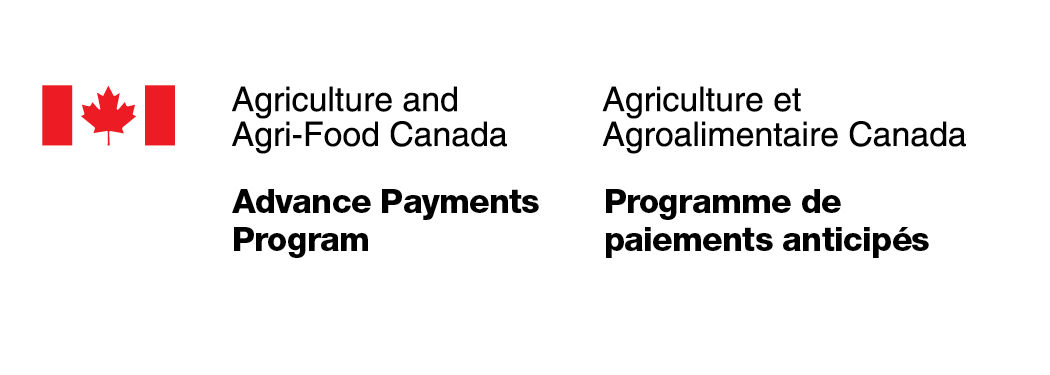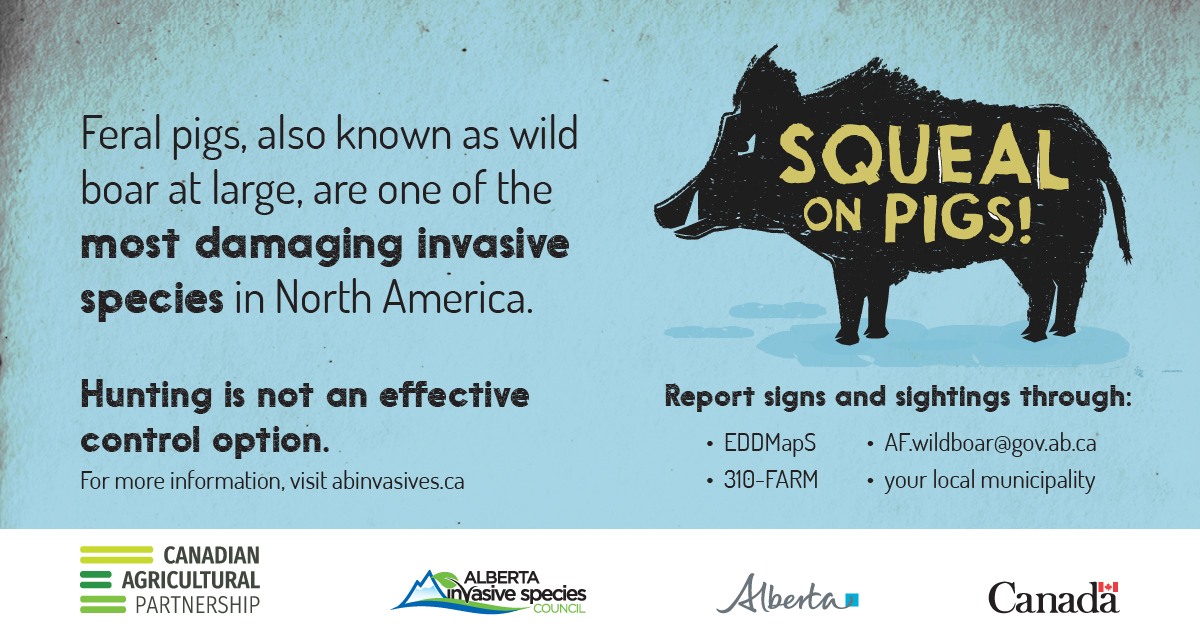Getting Started - Information for new producers
A Virtual Tool Box full of the information you need to know to run a successful operation is available from the Canadian Sheep Federation.
ALP's Shepherding 101:Getting Started module gives an overview of the basics of sheep production.
The Canadian Sheep Industry Information for Lenders report was prepared by the Expansion Working Group under the Sheep Value Chain Roundtable. When applying for loans, producers are frequently required to provide general information about the sheep industry. The Lenders Report provides key information regarding production, marketing, economic, and other aspects of the Canadian sheep industry, together in one document.
SheepCentral Alberta YouTube Channel
Visit http://www.youtube.com/user/SheepCentralAlberta to watch sheep industry videos.
You will also find additional resources under the other category headings of the 'New Producers Information' section, here on the ALP website. Once you review the information under this heading, we welcome you to review the other information listed under our 'Resources' tab.
Nutrition:
- Sheep and Goat Management in Alberta: Nutrition (ALP Management Module): Feed is the single largest cost associated with raising small ruminants, typically accounting for 60% or more of total production costs. The quality of nutrition exerts a huge influence on flock health, reproduction, milk production, and lamb growth. This document provides information about the sheep digestive system, nutrient requirements, feedstuffs and feeding management.
- 'Feeding Your Flock When hay is Limited' webinar with Dale Engstrom: Nov 14, 2015
- Webinar handout (pdf)
!-- -->
- Feed Testing in Alberta (link to the Alberta Agiculture and Forestry list of feed testing facilities in Alberta)
- Feeding High Nitrate Crops to Sheep (fact sheet)
- Feeding Lambs – Frequently Asked Questions (fact sheet)
- Use Caution When Changing Sheep Rations (fact sheet)
- Body Condition Scoring (link to health page)
SheepBytes Ration Balancer is an on-line program specifically designed to balance cost-effective feed rations for all types of sheep. To learn more about SheepBytes and to access the video tutorial, go to www.sheepbytes.ca.
Grazing Management:
- An Introduction to Managed Grazing (ALP Management Module): With ever-increasing land and feed costs lamb producers are looking to make the most of their pastures. Managed grazing helps get the most out of pastures by looking after the forages and improving pasture productivity; by selecting forages that can help extend the grazing season and reduce ‘days on feed’; and by managing pastures to meet the nutritional needs of a flock. This module covers the proper techniques for pasture rotation, paddock management and the pros and cons of each type of forage that is available in Western Canada.
- Forage Growth and Intensive Grazing Basics (ALP fact sheet)
- When To Open and Close the Gate (ALP fact sheet)
- “Filling Feed Holes In The Feed Year” (ALP fact sheet)
- Fencing in Alberta (ALP fact sheet)
- Videos on ALP's YouTube channel, Sheep Central Alberta:
- Predation Management (ALP Management Module):In most areas of Canada, managing predation must become an integral component of sheep management systems, similar to parasite management and flock nutrition, to ensure optimum production from the ewe flock. The intent of this manual is to provide practical predation management options, along with pertinent background information on the primary predator species sheep producers in Alberta encounter. Although sheep are lost to a number of different predators, coyotes remain the number one predator of sheep and lambs in Canada and will be the primary focus of this manual.
- Predator Control (ALP fact sheet)
- Fencing in Alberta (ALP fact sheet)
- Guardian Animals for Alberta (ALP fact sheet)
- In Alberta coyotes are classified as a 'nuisance' species. Permits are required to impliment many aspects of their control. Click here to visit the Alberta government website for more information about obtaining permits and for a link to the Pest and Nuisance Control Regulation. Careful consideration is required when placing poisons or control devices for the use in coyote control. Because of this, Agriculture and Forestry has instituted aCoyote Predation Control Manual and Study Guide (revised March 2016) to cover predation control in Alberta. County Agricultural Fieldmen have the knowledge and expertise to advise agricultural producers of the proper use of devices and poisons.
- Predator Compensation Investigations webinar with Alex Bolland, Alberta Fish and Wildlife Officer (presentation given January 8, 2022).
- Predation Management with a focus on Coyotes (presentation given at the 2014 ALP zone meetings (pdf). To view speaker notes hover your cursor over (or touch) the adobe bubble symbol at the top left corner of each slide.)
- Stock Dog Resources
- Wild Boar in Alberta - this takes you to the Alberta.ca page about wild boar which has information about their biology and how to recognize wild boar sign, as well as what the GOA is doing about the issue, and how to report sightings to them.
- You can also visit the AISC website to see more content on wild boar. Education and outreach for wild boar is being led by the AISC through the Squeal on Pigs! campaign.
- Shepherding 101: Predation (video on ALP's YouTube channel, Sheep Central Alberta)
Markets for Your Lambs and Sheep
- Auctions
- Dealers, Buyers and Feedlots
- Provincially Inspected Processing Plants
- SunGold Specialty Meats (Federally Inspected Processor)
Internal and external parasites can drain the productivity and profitability of your sheep, and increase their susceptability to other diseases. In recent years, resistance to many veterinary products used for controlling parasites has complicated parasite management. In addition to using the materials listed below, also see the parasite section of the Health Module. Consulting with your veterinarian and monitoring the level of infection of your flock, allow you to target your control efforts to increase effectiveness.
- Parasite Control & the ‘Five Star Worm Plan’ (An extensive parasite control handbook developed by the University of Guelph. Although developed specifically using Central Canadian research, much of the information is relevant for all sheep producers. This link will redirect you to the Ontario Sheep Marketing Agency website.)
- Guide to Parasites in Sheep (ALP booklet)
- Facts about T. ovis (ALP fact sheet)
- Mycoplasma ovipneumoniae (M.ovi) Awareness Webinar presentation one and presentation two on June 14th, 2021, a partnership webinar between Alberta Goat Association, Alberta Lamb Producers, and Alberta Farm Animal Care & Best Practices Handout.
- M.ovis AB Fact sheetBig Horns Pneumonia December 2, 2022
- M.Ovi Fact Sheet September 2022
- M.ovis BC fact sheet
- The Problem with Spots (article by Dr. Kathy Parker on controlling T. ovis published in the April 2012 ALP N'ewesletter)
- Sheep Parasites in Alberta (NEW Gastrointestinal Sheep Parasites in Western Canada Website)
Videos on ALP's YouTube channel, Sheep Central Alberta:
Thin Ewe Syndrome: Tackling production limiting dieases (includes information on parasite control)
The Sole distributor for Canadian Sheep Identification Program tags:
Canadian Co-operative Wool Growers (CCWG) Call 1-800-567-3693
ALP maintains a list of veterinarians who have expressed a particular interest in working with small ruminant species and in receiving regular communications from Alberta Lamb Producers.
The Alberta Veterinary Medical Association (ABVMA) maintains a searchable database of licensed veterinarians in Alberta.
Please find below, important contact lists for our industry.
- Sheep Feed, Equipment and Supplies
- Feed & Water Testing Laboratories
- Shearers
- Wool Buyers and Depots
- Provincially Inspected Processing Plants
Sheep producers know the importance of animal welfare. Sheep that are well-treated are more productive and profitable than those given a lower level of care. As well, public opinion and consumer confidence decreases when cases of animal abuse and neglect are publicized.
Click links below to learn more:
- Important Animal Welfare Organizations
- Animal Welfare Legislation
- Animal Welfare and Handling Resources
Important Animal Welfare Organizations
- Alberta Society for the Prevention of Cruelty to Animals: The Alberta Society for the Prevention of Cruelty to Animals (Alberta SPCA) is a registered charity dedicated to the welfare of animals. The SPCA encourages the humane treatment of animals through enforcement of animal protection legislation and through education programs throughout Alberta. To report animal abuse or neglect call 1-800-455-9003.
- National Farm Animal Care Council: The National Farm Animal Care Council (NFACC) brings together diverse stakeholders to:
- develop Codes of Practice for the care and handling of farm animals,
- create a process for the development of animal care assessment programs,
- provide a forum for open dialogue on farm animal welfare.
- Alberta Farm Animal Care: Alberta Farm Animal Care Association or AFAC was started in 1993 by Alberta livestock producers. Throughout the past 20 plus years AFAC has developed into the collective voice of the livestock industry on matters of livestock welfare. AFAC has provided a coordinated approach for all areas of livestock production to work together to advance and promote responsible livestock care.
- AFAC ALERT Line (1-800-506-2273) is a confidential call line for anyone to report livestock care concerns.
Animal Welfare Legislation
Alberta producers are subject to legislation which governs the treatment of animals. There are several Acts that protect animals on the Federal and Provincial levels. The Acts are enforced when animals are reported as in distress, lacking care or subjected to willful abuse
Alberta’s Animal Protection Act states that an animal is in distress if it is (2a) deprived of adequate shelter, ventilation, space, food, water or veterinary care or reasonable protection from injurious heat or cold; 2b) injured, sick, in pain or suffering, or; (2c) abused or subjected to undue hardship, privation or neglect. However, activities carried out in accordance with “reasonable and generally accepted practices” of animal care do not apply. The Criminal Code of Canada prohibits anyone from causing suffering, unnecessary pain or injury to an animal or bird, whether through willful action or neglect.
- Alberta's Animal Protection System (diagram)
- Overview of Animal Protection Legislation (Federal and Provincial - diagram)
Animal Welfare and Handling Resources:
- Guide to the Humane Care, Handling and Transportation of Sheep (Guide developed by ALP and Animal Farm Animal Care to help determine if an animal is fit for transport)
- Responsible Animal Care and the Code of Pratice (ALP fact sheet)
- Animal Welfare Considerations for Castration and Tail Docking (ALP fact sheet)
- Handling Systems for Sheep (ALP fact sheet)
- Setting It Up: Sheep Infrastructure (ALP Infrastructure module) contains information and plans for handling systems for sheep operations
- Body Condition Scoring (link to Health Page)
- Sheep Pain Facial Expression Scale (aid for gauging use of pain medication)
Videos on ALP's YouTube channel, Sheep Central Alberta
The number of lambs you market has a direct impact on the profitability of your flock. Most lamb mortalities occur during or shortly after birth. Investing the time and effort into ensuring your lambs are given the best start possible will pay off with more live lambs. Taking care of lambs begins with ensuring your ewes are well taken care during pregnancy, particularly during the last four to six weeks of gestation. See the ALP Reproduction and Nutrition modules for more details about ewe management.
Sample Lambing Record Templates
Template one
Template two
Preparing for Lambing and Difficult Births (also see ALP video below):
- List of suggested lambing supplies
- What you need to know about lambing (Presentation by Dr. Ileana Wenger (pdf))
- Assisting Ewes with Difficult Births (Dystocia) (ALP factsheet)
- The Veterinary Book for Sheep Farmers: Lambing Time Summary (external link to a detailed lambing guide.)
- Manual of Lambing Techniques (detailed lambing guide from The Crowwood Press)
Caring for Hypothermic Lambs:
- Hypothermia - using your thermometer (handout from Dr. Wenger's presentation)
- Intraperitoneal injection of glucose (handout from Dr. Wenger presentation)
- Hypothermia and Interperitoneal Injections (ALP factsheet)
- Hypothermia and Stomach Tubing (ALP factsheet)
Castration and Tail Docking:
- Animal Welfare Considerations for Castration and Tail Docking (ALP fact sheet)
-
For 'how-to' guides for castration and tail docking, check Shepherding 101, Reproduction module or the Code of Practice
-
'How to' tail dock lambs. Video on the Canadian Sheep Breeders Association website.
Neonatal Lamb Post-Mortem Resources (Also see 'Neonatal Management' webinar with Lynn Tait, below)
- 'ALP Examination Guide' - Detailed information on preforming postmortem exams, booklet
- 'ALP Examination Checklist' - 2-page sheet for use during a post-exam (laminated version available from the ALP office)
- 'ALP Examination Record Sheet' - To recording results for individual examinations
- 'Lamb Post-Mortem Protocol for Use on Farm: To Diagnose Primary Cause of Lamb Death from Birth to 3 Days of Age' - Reference article
- 'Lamb Autopsy. Notes on a procedure for determining cause of death' - Link to autopsy guide.
Mastitis: Mastitis in Ewes (ALP fact sheet)
Early Weaning: Early Weaning Protocol (ALP fact sheet)
Videos on ALP's YouTube channel, Sheep Central Alberta
Part of the Shepherding 101 series
'Neonatal Management' webinar with Dr.Lynn Tait
Scotiabank Yield More FinancingTM Program

The Scotiabank Yield More FinancingTM Program offers ALP members access to a line of credit to expand their flock by purchasing ewes. The new program is open to Alberta sheep farmers with at least two years of experience, with a simple application and approval process.
*Application window opens March 1, 2023.
- For more information including frequently asked questions click here
- Contact ALP to complete an application at 403.948.8533 or This email address is being protected from spambots. You need JavaScript enabled to view it. or you can contact Scotiabank at This email address is being protected from spambots. You need JavaScript enabled to view it.
Farm Credit Canada (FCC)
Farm Credit Canada (FCC) offers an assortment of different loans for beginning producers. Information on the type of loans offered can be found by clicking here or by calling 888.332.3301.
Additional resources which help to focus on management and planning for your farm include Farm Credit Canada workshops that take place in the fall and winter with registration beginning in the summer. Some of these workshops include: Farm Financial Management, Transferring the Farm, Vision and Goal Setting, and Commodity Marketing Management.
For more information and a list of dates and locations phone 888.332.3301 or click here.
Feeders Associations of Alberta Limited (FAA)
Alberta Breeder Finance Inc (ABFI)
Program highlights and details:
Eligible Livestock: Ewe Lambs and Yearling Ewes.
100% Value Financing for up to 6 year terms* (Costs include: branding, pregnancy testing, commissions and clearing charges, excluding trucking)
10% Security Deposit (Pooled Deposit) or use the Equity that you have in your own Cattle
Loan Max of $250,000 per operation, on exception to a maximum of $500,000 (additional credit assessment)
Interest Rate of Prime + 0.90% (ATB Financial Prime rate 3.95% effective October 25/18)
Loan Terms
- Ewe Lambs - Four Year Term
- Yearling Ewes - Four Year Term
Maximum Per Head Loan Limits
ABFI may limit these amounts at anytime depending on market or other conditions.
Ewe Lambs- $260/hd
Yearling Ewes-$325/hd
Click here for more information
Western Cash Advance Program
Government of Canada Implements New Regulations to Enhance Advance Payment Program. Please see the attached link for the official news release and Quick facts.
https://www.canada.ca/en/agriculture-agri-food/news/2019/06/government-of-canada-implements-new-regulations-to-enhance-advance-payments-program.html
The increased loan limits for the Advance Payments Program (APP) will be accessible to Canadian farmers through administrators will be able to apply for the new amounts as early as June 10, 2019 and the new advances above $400,000 will be issued on June 26, 2019. The Increased cash advance funds include the following:
- Maximum loan limit increases from $400,000 to $1 million on all commodities,
- Interest-free portion on canola advances increases from $100,000 to $500,000, and
- Interest-free portion on all other commodities remains at $100,000.
The government also announced that the maximum loan limit increase to $1 million will be a permanent APP amendment for all producers. The government also announced a two-month extension to AgriStability enrollment for the 2019 program year without penalty, from April 30, 2019 to July 2, 2019.
WeCAP has been working closely with Agriculture and Agri-Food Canada (AAFC) to implement the new limits since the initial announcement of the APP loan limit increases made by Agriculture Minister Marie-Claude Bibeau on May 1, 2019. Producers will be apply to apply for the new amounts as early as June 10 and new advances above $400,000 will be issued as of June 26, 2019. Farmers looking to begin their application process or for more information are encouraged to call the WeCAP office at 1-844-333-3377 or email This email address is being protected from spambots. You need JavaScript enabled to view it.
The Advanced Payments Program (APP) offers:

- $100,000 interest-free and up to $1,000,000 available to you!
- Low Interest Rates
- Increase your Profitability and the Flexibility to sell your commodity when the market is in your favour.
- Up to a 2 year repayment period, depending on commodity advanced (see application for details).
- Friendly Staff willing to help you with all your questions and concerns.
- Production Insurance, AgriStability, WLPIP and/or GARS Options for Security.
This program is made available by Agriculture & Agri-Food Canada (AAFC)
For more information click here
Agriculture Financial Services Corporation (AFSC)
For over 80 years, Agriculture Financial Services Corporation has provided Alberta farmers with crop insurance, livestock price insurance, farm loans, commercial loans and farm income disaster assistance.
For more information click here.
Canadian Agricultural Loans Act (CALA)
A financial loan guarantee program or the Canadian Agricultural Loans Act (CALA) program can help give a producer access to credit. This program is open to beginning and existing farmers, farmers taking over the family farm and also to agricultural co-operatives. The maximum loan granted for land and construction or renovation of buildings is $500,000. For all other purposes the maximum amount is $350,000. For complete details about this program phone 1-888-346-2511 or click here.
Financial Institutions
Most financial institutions offer lending and agriculture financing opportunities.
The Ewe Planner is a spreadsheet-based tool used to make five-year annual projections for a new or existing ewe-lamb operation from the Saskatchewan Sheep Development Board and the Government of Saskatchewan.
